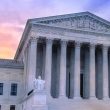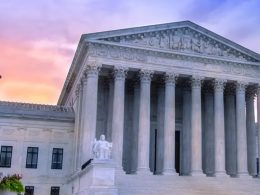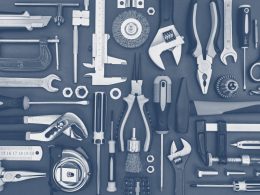by Hubert Marleau, Market Economist, Palos Management
August 30, 2024
The Bureau of Economic Analysis (BEA) announced on Thursday that the U.S. economy did better in Q2 than previously estimated, growing in real terms at the annual rate of 3.0%, while the Atlanta Fed and NY Fed GDPNow models lifted, on August 30, their estimate for GDP growth in Q3 to 2.5% from 2.0%. Meanwhile, PCE inflation held steady in July, rising 0.16% m/m and 2.5% y/y, with the 3-month annual rate of core PCE dropping to 1.7% from 2.1% in June. With many retailers introducing new price-sensitive programs to keep low-income consumers as active customers, pricing pressure is unlikely.
On the surface, cooler inflation and strong spending is welcome news because it’s exactly what the market wanted, favouring a regular 25 bps reduction in the Fed’s policy rate. Unfortunately, however, it came about because of Americans’ willingness to reduce their personal savings rate to historically low levels, which printed 3.3% in Q2 and only 2.9% in July.
Thus the employment numbers are bound to become the single most data points on which personal consumption will depend and, in turn, become significantly more important than inflation numbers in dictating how the Fed will conduct its monetary policy from September on. Given the slower pace of hiring and the falling rate of quits, August job numbers are likely to be subdued.
As a matter of fact, the Conference Board’s latest survey of consumer confidence reported that the share of people who view jobs as plentiful had slipped to 32.8% from 33.4%, and those harder to get rose to 16.4%. The ratio between these 2 surveys fell to 2 times, the narrowest since March 2021. Regrettably, this is happening at a time when the labour participation and the growth of the working-age population have just started to fall.
From hereon, I shall keep a close watch on the employment situation. The uncertainty that these revelations brought about probably accounts for last week's lacklustre performance of the S&P 500, which closed on Friday at 5648, up only 13 points.
- Everything Is Dismally Political: I do not trust opinions based solely on partisan position or political affiliation, and am concerned about the manner of how tariffs, price controls, regulations, deficit spending, and corporate taxes are being treated by all political parties. The policies they propose are positively foolhardy. I have expressed my dislike of tariffs and of price controls, suggesting that both can generate inflation, create supply shortages and reduce product quality. Rational thought shows that corporations are not guilty of price gouging and they do not produce certain products when the comparative advantage does not exist. I find that political complaints and advocacies are not supported either by empirical evidence nor theoretical validity, unless national security is threatened. I devoutly hope that the American people are not foolish enough to give either party full control of Congress and the White House. (There’s also the revenue cap to deal with.)
- Corporate Taxes: Corporate profits are the essential motivation behind important economic decisions in a free capitalistic system, playing the dominant role in business activities such as production levels, employment and investment. Corporate earnings are ignored broadly by the public media, but criticised carelessly by politicians for political gains. Little attention is paid to the reality that the accumulation of wealth Iis savings, and the creation of wealth is investment. Thus savings equals investment. Without getting too hung up on exactly how this identity process works, suffice it to say that businesses are the main creator of wealth. Not only are corporate cash flows (savings) much larger than household savings, the latter mainly end up in residential construction, leaving businesses with the toil of making the bulk of the investments where wealth is created in the first place: business structures, software, and R&D, including information industrial and transportation equipment. In 2023, corporations invested $4.8 trillion in what is called fixed capital formation (investment) with only $3.0 trillion funded from internal sources and the rest from borrowings.
There is talk that the corporate tax rate may be lifted to 28% from 21%. This would not only favour higher prices, lower wages and fewer jobs to offset bigger tax bills, but more importantly - diminish cash flows, which in turn tend to decrease domestic investments and incentivize them to consider foreign options.
Copyright © Palos Management














